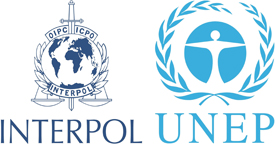|
|
 |
 |
 |
 |
Web Coverage/
Summary Report
IISD Reporting Services (IISD RS) has produced web coverage and a summary report from this Conference. To download our report, click the HTML or PDF icons below. |
|
 |
 |
 |
 |
|
 INTERPOL-UNEP International Conference on Environmental Compliance and Enforcement
INTERPOL-UNEP International Conference on Environmental Compliance and Enforcement
6 November 2013 | UN Environment Programme (UNEP) headquarters, Nairobi, Kenya
|
|
Highlights for Wednesday, 6 November 2013
|
 |
 |
 |
 |

The First International Environmental Compliance and Enforcement Conference convened on 6 November 2013 in Nairobi, Kenya. Convened by INTERPOL and the UN Environment Programme (UNEP), the meeting was attended by over 300 participants including national enforcement officials, government representatives, and representatives from non-governmental organizations, international organizations and civil society.
Over the course of the day, participants discussed: recent trends in and the impacts of violations of international environmental law, particularly on sustainable development and the implemention of agreed environmental goals; possible solutions to combat environmental crime; and the impact of new and existing tools in combatting these violations. They also discussed the outcomes and action points for the Conference.
During the opening session, Achim Steiner, UN Under-Secretary-General and UNEP Executive Director, stressed the dramatic increase in wildlife poaching and illegal trade and said that poaching is a failure of both national systems and international cooperation. Jean Michel Louboutin, Executive Director, Police Services, INTERPOL, said that environmental crimes cannot be dealt with effectively unless law enforcement officials, governments, the private sector, experts and international organizations work together. Githu Muigai, Attorney General, Kenya, noted the unprecedented growth in wildlife poaching in Africa, driven by increasing demand for ivory and involving armed groups using sophisticated methods.
During the session on the trends and impacts of crime and other illicit activities against the environment, panelists highlighted that environmental crime undermines livelihoods and resource security. They noted the need for inter-sectoral coordination and urged addressing the drivers of demand for illicit goods.
During the session for identifying solutions and impacts, participants questioned how to: scale-up successful projects for decreasing environmental crime; change perceptions to decrease demand for certain goods; increase punitive measures for environmental crime; and harness the current interest in wildlife crime to address the issue.
Action points suggested by participants during the final session included, inter alia, capacity building, improving intelligence capabilities and increasing intelligence networks, developing operational tools and toolkits, setting priorities and identifying current and emerging threats, and standardizing planning.
The conference closed at 5.38pm.
|
|
 |
 |
 |
 |
|
| |